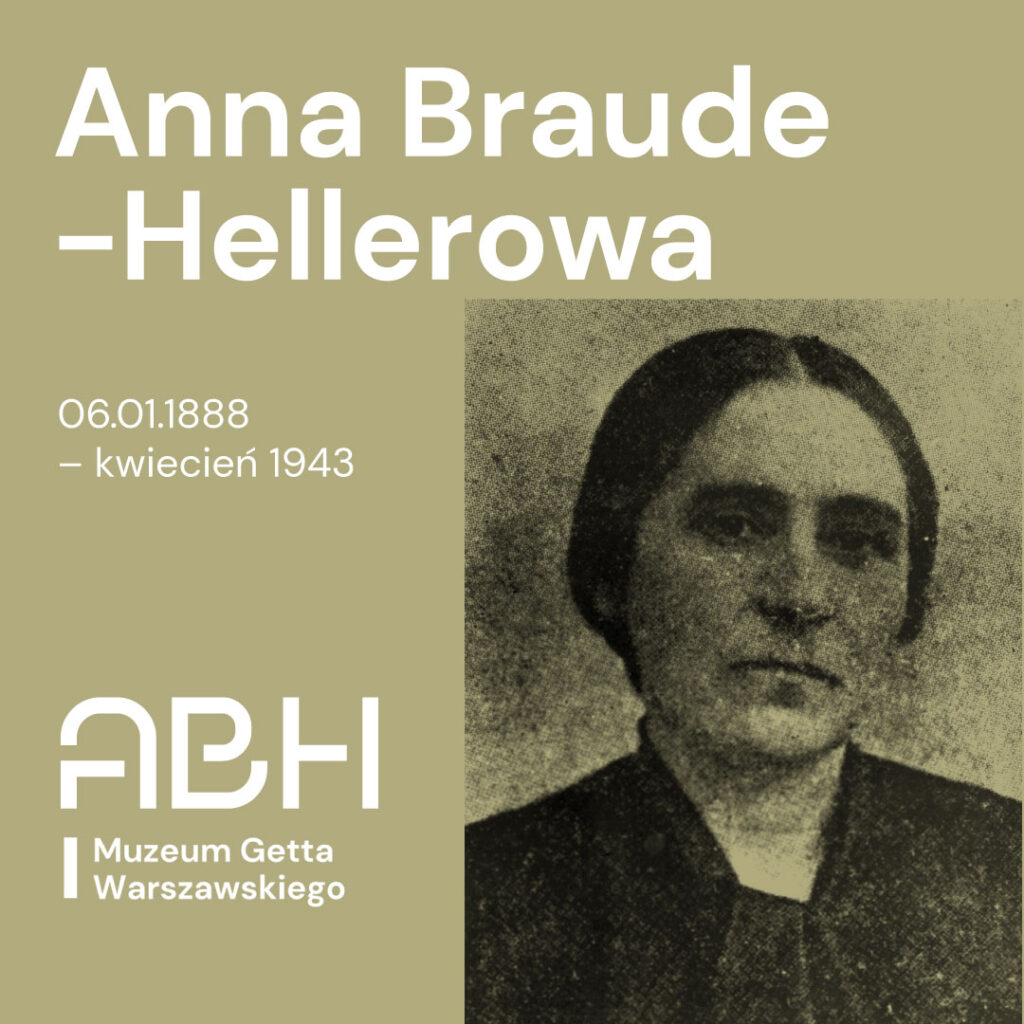Anna Braude-Hellerowa (06.01.1888–04.1943)
physician-pediatrician, doctor of medical sciences, social and political activist, Warsaw city councilor, in 1930-1942 chief physician of the Bersohns and Baumans Children’s Hospital in Warsaw

She was born as Chana Riwka Braude to a wealthy Jewish family in Warsaw; her parents were the silk merchant Lejba and Tauba née Litwin. Although the family was traditional and religious, the parents spoke Yiddish among themselves but Polish with their daughters. Braude-Hellerowa attended the school of Fryderyka Thalgruen. She dropped out after the sixth grade due to a conflict with the school administration when Anna stood up for her unprivilidged friends. She continued her education with a private tutor and graduated from high school in Kiev in 1906. Then she began studying social sciences in Switzerland, where she came into contact with the Jewish socialist milieu and joined the Bund. She soon switched to medicine in Zurich and finally earned her medical degree in Berlin in 1912. She nostrified it in Saint Petersburg and then began a medical practice in the Moscow governorate.
In 1913 she returned to Warsaw and began working at the Jewish Hospital in Czyste, in the internal medicine department of Dr. Rappel and in the polyclinic of Dr. Samuel Goldflam. A year later she was employed at the Bersohn and Bauman Children’s Hospital. She was a co-founder of the Society of Friends of Children; she worked in the outpatient clinic TPD and as chief physician in the educational home she organized. At the same time she was a consultant at CISZO (Yiddish Centrale Yidisze Shul Organizacje). In 1919-1923 she organized and directed the first school for children’s nurses in Poland at the Mother and Child Center at 31 Bonifraterska Street, of which she later became the director. As part of her social activities, she was active in the Child Care Section of the Bund Party and in the Włodzimierz Medem Sanatorium for Children in Miedzeszyn, of which she was a co-founder. She also sat on the Warsaw City Council.
It was largely thanks to her efforts that the Bersohn and Bauman Hospital was reopened in 1930 and operated as TPD from that year on. Braude-Hellerowa became its director and head of the infant ward. She remained at the hospital in September 1939 and for the following months. After the establishment of the Warsaw Ghetto, when the hospital fell within its boundaries, she directed it until its final liquidation in August 1942. She was jointly responsible for the students’ secret classes and internships. She was also chairman of the Judenrat’s health committee. She co-authored a study on hunger disease in the ghetto, the results of which were published in 1946.
Anna Braude-Hellerowa refused to leave the ghetto because she did not want to leave the sick children behind. The circumstances of her death are unknown. She probably died together with patients and some of the staff in the bunker at Gęsia 6 St during the Warsaw Ghetto Uprising. When Judith Braude reported these events at the Yad Vashem Institute in Jerusalem, she admitted that her sister had potassium cyanide and hoped that she had used it. Anna Braude-Hellerowa probably died along with her sister Sarah. She was posthumously awarded the Order of Virtuti Militari.

